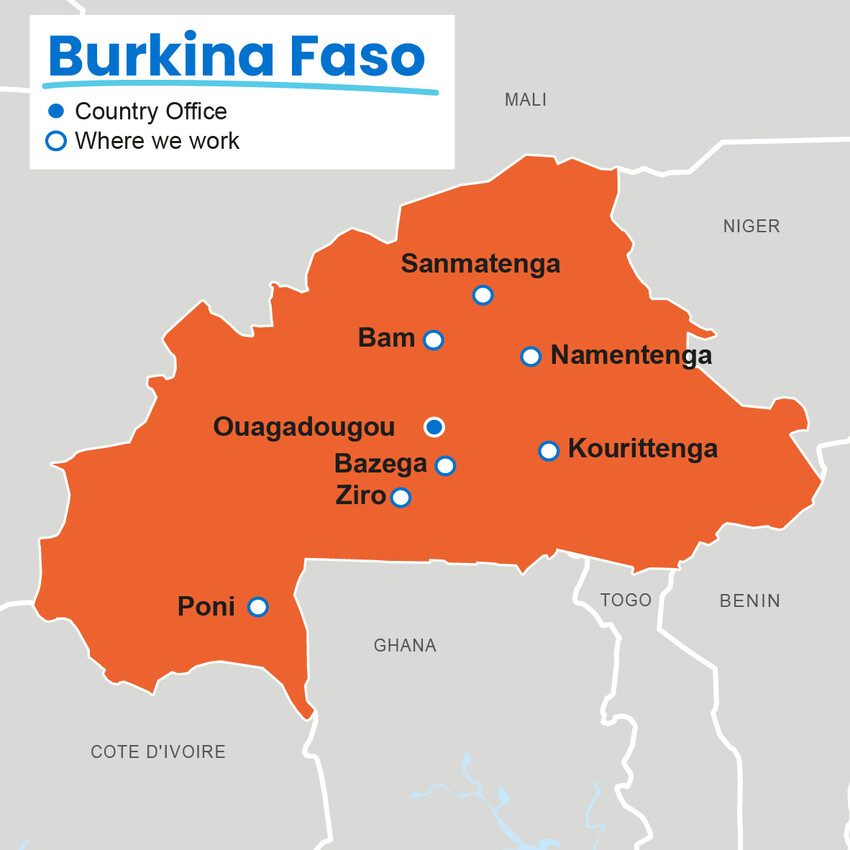Report: School feeding initiatives in the Central Sahel
In the Central Sahel, Plan International has implemented school feeding initiatives in response to the hunger crisis.
Plan International is an independent development and humanitarian organisation that advances children’s rights and equality for girls.
Plan International Burkina Faso started operating in 1976 and works in the most vulnerable areas of the country.
Since then, we have led projects on education, health, water and sanitation, economic empowerment and protection and have become one of the most prominent children’s rights organisations in the country.
We advocate with girls to influence the government and other stakeholders so girls in Burkina Faso are able to learn, lead, decide and thrive.
We won’t stop until we are all equal.
Our current priorities include:
Act now. Save lives.
Zone d’Activites Diverses, Rue 15-397, 01 BP 1184 Ouagadougou 01,
Ouagadougou
Burkina.CO@plan-international.org
Follow us:
